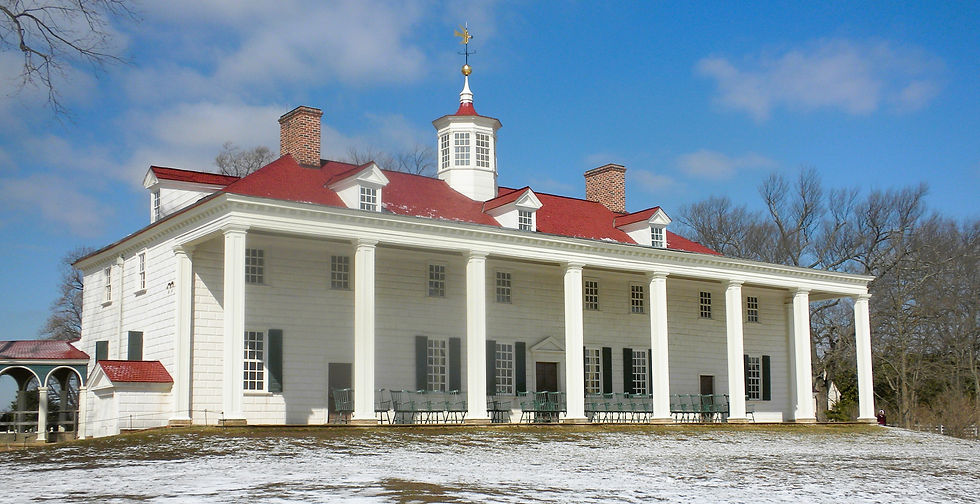Summoning the Better Angels of Our Nature in a Dark Hour - January 20th, 2021
- Bill Stauffer

- Jan 20, 2021
- 4 min read

Picture taken by author in June 2018 - US Capitol Rotunda
Gone, for now is the ability to assert that we have a shared value of a peaceful transfer of power. There are few if any times in our history when we have been more vulnerable as a nation, which has historically seen the peaceful transfer of power as vital to the continuity of governance and national unity. Patriotic Americans, having voted and lost, would acknowledge their disappointment, but then proudly reflect our way highlighted American exceptionalism. By tradition, members of the Joint Congressional Committee travel to the White House to escort the President-elect, Vice President-elect, and their spouses to the Capitol for the Inaugural Ceremonies to symbolize this unity. This is also no small loss.
What is occurring now – armed groups having attacked our seat of government, setting up gallows and searching out to abduct or kill our elected officials and now threatening to marching with guns on all 50 state capitols is an unmatched debacle greater in scope than 911. And now we have mobilized the military to protect those who were elected from the people. It is an affront to our founders and all who have fought for our country. If this is our “new norm”, this nation will not long be. United no more. The grand experiment in self-governance over and going down for all time as ending in failure. On our shift.
Reflecting on what our founders said about these matters. Alexander Hamilton started the Federalist Papers with this statement: “it seems to have been reserved to the people of this country, by their conduct and example, to decide the important question, whether societies of men are really capable or not of establishing good government from reflection and choice, or whether they are forever destined to depend for their political constitutions on accident and force.”
Our conduct and example at this important moment in history matters. We are at the crossroads between unity and disintegration. Our collective welfare depends on the former rather than the latter. One can follow why this peaceful transition of power as a shared value starting with the first Farewell Address of George Washington in 1796. Washington declined a third term he would have been granted by the people. He walked away from power for the good of our young nation, rightly believing that it was important to establish a peaceful transition of power for our country. The full transcript of that speech, which is perhaps the most important speech in American History can be found HERE.
Although long, this poignant excerpt seems like it was written for us, here now in this time and in this place:
"The unity of government which constitutes you one people is also now dear to you. It is justly so, for it is a main pillar in the edifice of your real independence, the support of your tranquility at home, your peace abroad; of your safety; of your prosperity; of that very liberty which you so highly prize. But as it is easy to foresee that, from different causes and from different quarters, much pains will be taken, many artifices employed to weaken in your minds the conviction of this truth; as this is the point in your political fortress against which the batteries of internal and external enemies will be most constantly and actively (though often covertly and insidiously) directed, it is of infinite moment that you should properly estimate the immense value of your national union to your collective and individual happiness; that you should cherish a cordial, habitual, and immovable attachment to it; accustoming yourselves to think and speak of it as of the palladium of your political safety and prosperity; watching for its preservation with jealous anxiety; discountenancing whatever may suggest even a suspicion that it can in any event be abandoned; and indignantly frowning upon the first dawning of every attempt to alienate any portion of our country from the rest, or to enfeeble the sacred ties which now link together the various parts."
President-elect Obama, during the transition period in late 2008 asked President Bush if it would be possible for him to meet all the ex-presidents. Bush agreed and organized a White House luncheon in the Oval Office on January 7, 2009. They were joined by Jimmy Carter, Bill Clinton, and George H. W. Bush. The luncheon lasted over two hours; the tone friendly. “All the gentlemen here understand both the pressures and possibilities of this office,” said Obama before the meeting. “For me to have the opportunity to get advice, good counsel and fellowship with these individuals is extraordinary, and I just want to thank the President for hosting us.” Bush was equally effusive. “We want you to succeed,” he replied. “Whether we're Democrat or Republican we care deeply about this country. And to the extent we can we look forward to sharing out experiences with you. All of us who have served in this office understand that the office transcends the individual.”
As a nation, we need to arrive at a common set of facts about what has occurred as well an accounting on what has happened here and who is responsible. And we must also identify what holds us together as a nation and build on those elements. What do we agree on? Is this whole thing worth holding together or shall we dissolve the nation? It is sadly, the question of our time.
The peaceful transition of power is the very spine of our nation. Present in those initial days as a fledgling nation in the late 18th century to today, frayed and strained at times, but unbroken. It must so remain. In one our most cherished stories from the moments after Constitutional Convention in 1787, Benjamin Franklin was walking out of Independence Hall as the convention ended, when someone shouted out, “Doctor, what have we got? A republic or a monarchy?” To which Franklin supposedly responded, with a rejoinder at once witty and ominous: “A republic, if you can keep it.”
Please, for our welfare and all those who come after us, let us all together do this difficult work ahead to keep it.




Comments